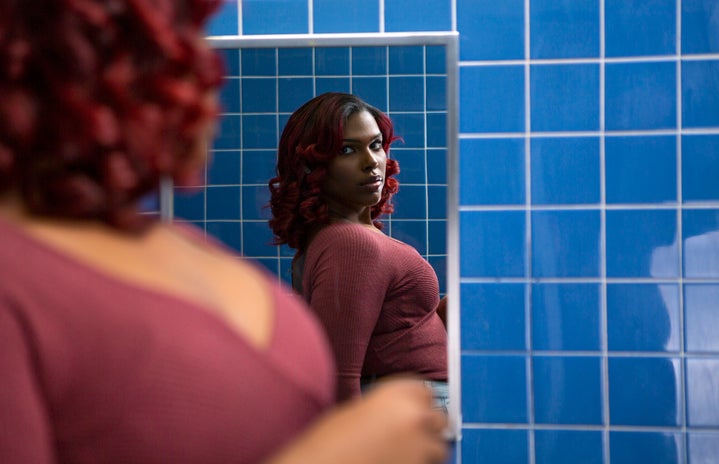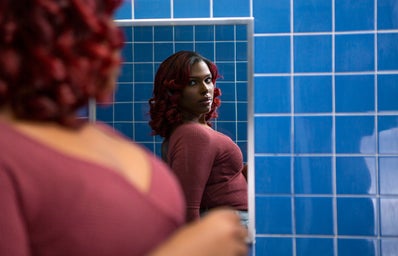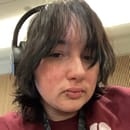From elementary to middle school, then to high school, I was never very well-liked. I grew up as the weird fat kid with ADHD that everyone found to be a little bit annoying and off-putting. I didn’t make a single friend until fifth grade, and even then, my friendships were never very sound.
One of the biggest reasons I felt so unsocialized was my self-image. I was born with PCOS and was officially diagnosed with it at 17, but my parents knew from the get-go. It was defeating and frustrating, to say the least. I clearly looked different than all the other kids. I was hairier and physically stronger, the hair on my head was thinner, and my voice was rougher. Also because of the PCOS, I had an impossible time losing weight. I wasn’t gaining it at an abnormal rate, but I just was not losing it, no matter how hard I worked. I did all the diets and spent hours on the treadmill, but I wasn’t losing a pound. Health to me, at this time, felt more like an unattainable goal than a process.
At this same time, I was starting to struggle with my gender identity. I wanted to be like the other girls, play with my Barbies, and grow up to look like them, but I couldn’t. As my role models started to turn from Barbie to Ken, I still never felt secure. I held myself to femininity again and again, because if I couldn’t be pretty and likable as a girl, why would I be as a boy?
When I was officially diagnosed with PCOS, I was finally able to obtain treatment. I went on an estrogen-based birth control that was supposed to help me feel better, and in some ways, it did. Now I could be like the other girls. I didn’t have to shave my face anymore and I felt better socialized among women. I finally started to feel like I could live a normal life, right? Not quite, because no matter what I took or how I dressed, I didn’t feel right. I was “healthy” now, I should be happier. That was my train of thought, at least.
After graduating high school, I regained control of my life. The process of packing up and moving reminded me of my youth and that feeling I just couldn’t shake. I looked at my mangled dolls, missing limbs and having all their hair cut short into messy buzz cuts. The designer dolls in pretty dresses remained untouched, sitting in the boxes they watched me grow up from. Sure, I was beautiful, and my weight was under control, but I didn’t feel healthy.
During my first semester of college, in early December, I was sitting in a lounge with my closest friends. I was shaking, staring at my phone, on the verge of tears. Pulled up was a green button that just said: “Confirm appointment.” With one of my friends holding my hand through it, I pressed that button and my life changed forever. Dec. 8, 2023, was the day I started HRT, and the day I finally learned the real definition of health.
Health, according to Oxford Languages, is “the state of being free from illness or injury.” Even though I went on the estrogen that was recommended to me, which I was told would make me healthy, I never felt it. A key part of Oxford’s definition of health is “being free.” Sure, I was healing the way my doctors and family thought I should be healing, but health doesn’t always have a clear-cut answer. My answer, instead, was to go with what my body and mind were telling me and do what made me feel free.
As of the date this will be posted, I will be five months on HRT, and I’m healthier than ever. Being myself ended up benefitting my health more than birth control was. I’m at my best point, at the gym three to five days a week because I love it, not because I feel like I have to, and comfortable within my own skin. Sometimes, I look back on that girl that nobody wanted to sit next to on the bus or play with at recess, and it reminds me that to be healthy is to be confident, happy, and free within yourself, not by the standards of everyone else.


